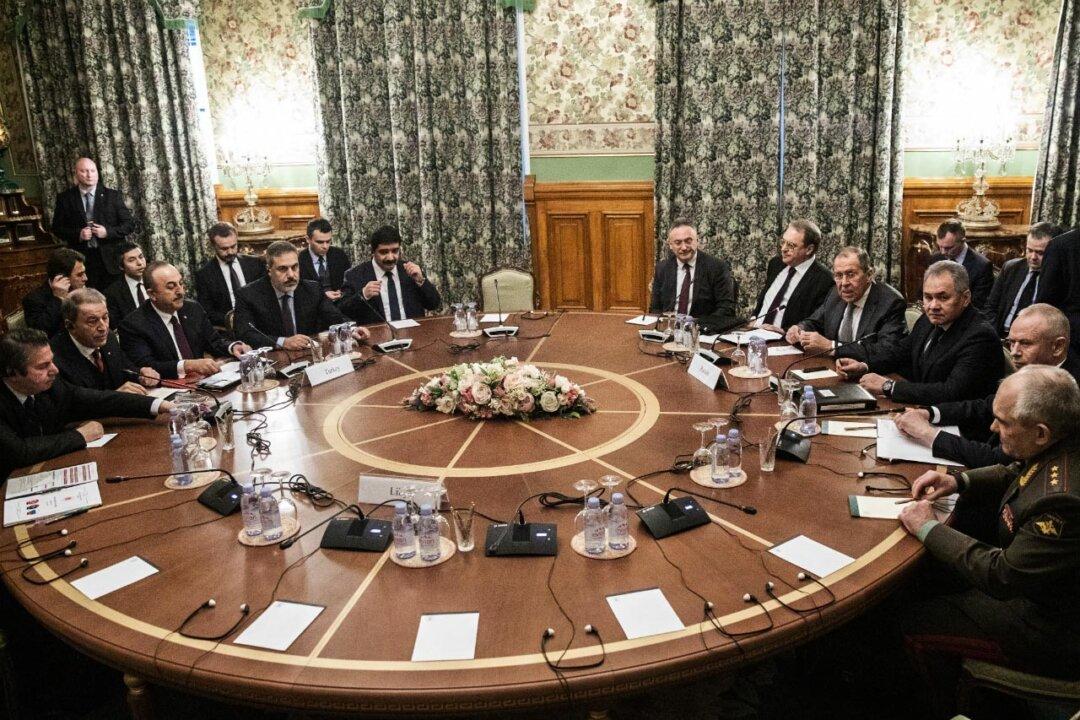The defense ministers of Iran, Syria, and Turkey met in Moscow on April 25 at a gathering hosted by their Russian counterpart, Sergei Shoigu.
The four-party talks also were attended by the intelligence chiefs of all four countries.

The defense ministers of Iran, Syria, and Turkey met in Moscow on April 25 at a gathering hosted by their Russian counterpart, Sergei Shoigu.
The four-party talks also were attended by the intelligence chiefs of all four countries.